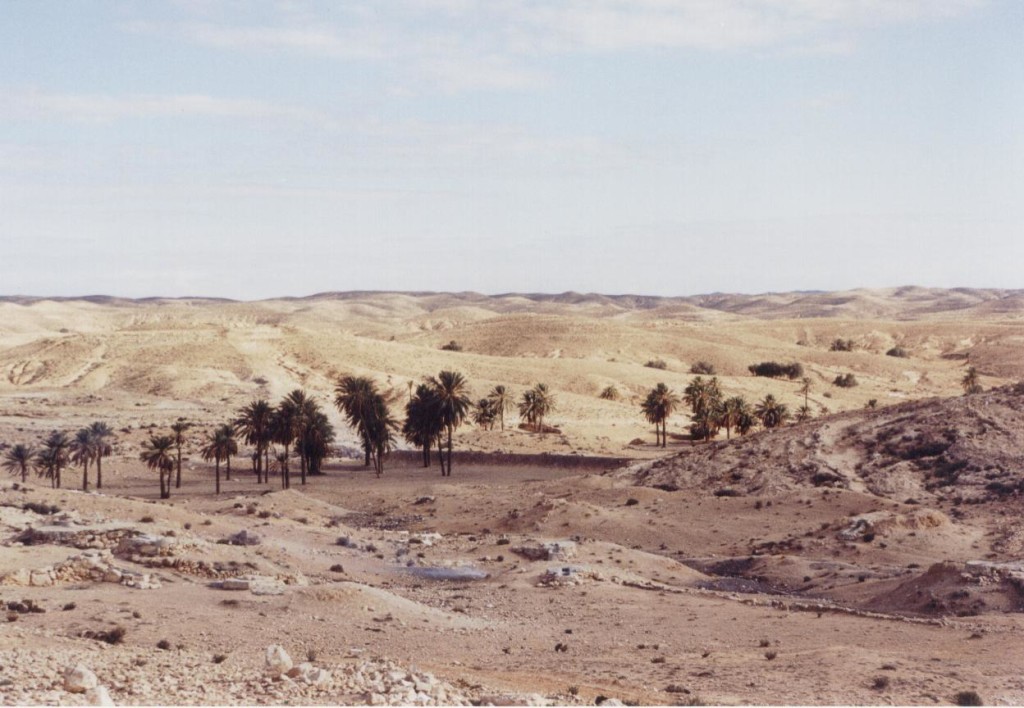
Matmata
For this series of posts that I’m calling The World of Children of Apollo, we’ll be taking a brief look at the Roman Empire at the beginning of the 3rd century A.D. Not to worry, this will not be an exhaustive history lesson but rather an historical and modern tour, guided by fiction. I’ll post photos and little anecdotes related to my travels and research over the course of writing Children of Apollo.
In this first entry, I’m going to look at the desert. From my very first glimpse, first smell and touch, of the North African Sahara, I knew that the desert itself would be a character. I had always wondered how something so plain could be such a draw. However, I immediately fell in love with the landscape. It’s unlike any other place, a sand sea of undulating dunes and scattered oases. In some areas, the sand is literally as soft as sifted flour.
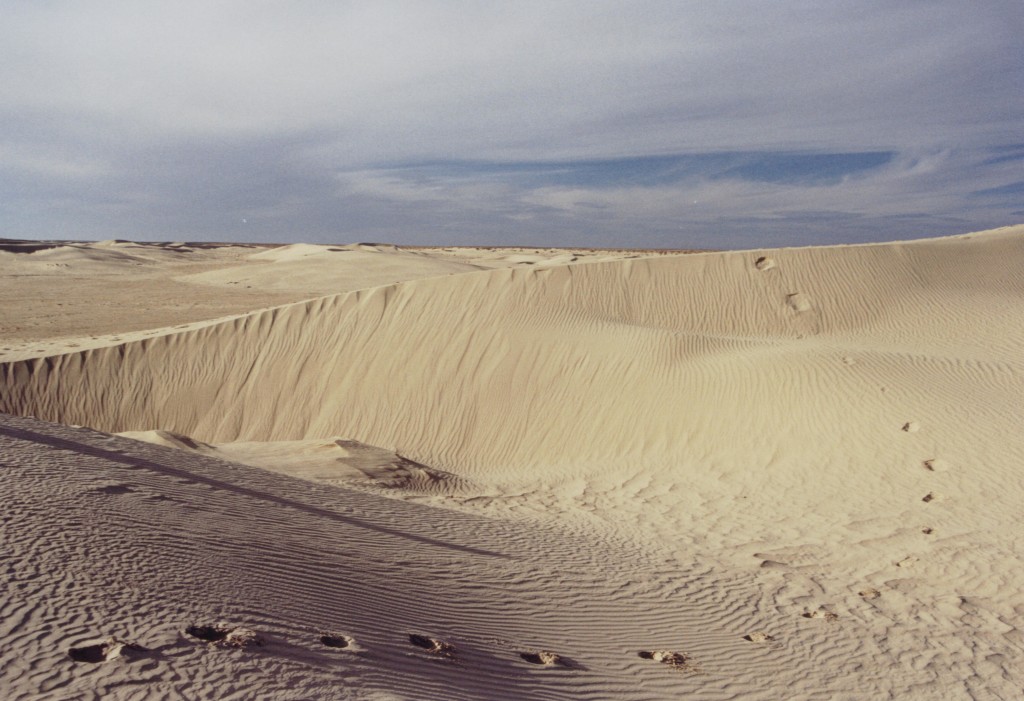
Saharan Dunes
Children of Apollo (you can read an excerpt HERE) begins with a Roman cohort marching through the desert in the provinces of Cyrenaica and Africa Proconsularis, which included modern Libya and Tunisia. I was not able to visit Libya but, when I was in the Tunisian Sahara, the image of a marching Roman column in the heat of the bleak but mysterious landscape was something that stayed with me. This was the southern frontier of the Roman Empire, from Egypt to the Atlas Mountains of Mauretania province. The II Traiana garrisoned Alexandria and small auxiliary detachments were stationed at settlements along the coast. The only other full legion in North Africa at the time was the III Augustan stationed at Lambaesis, to the west, in Numidia.
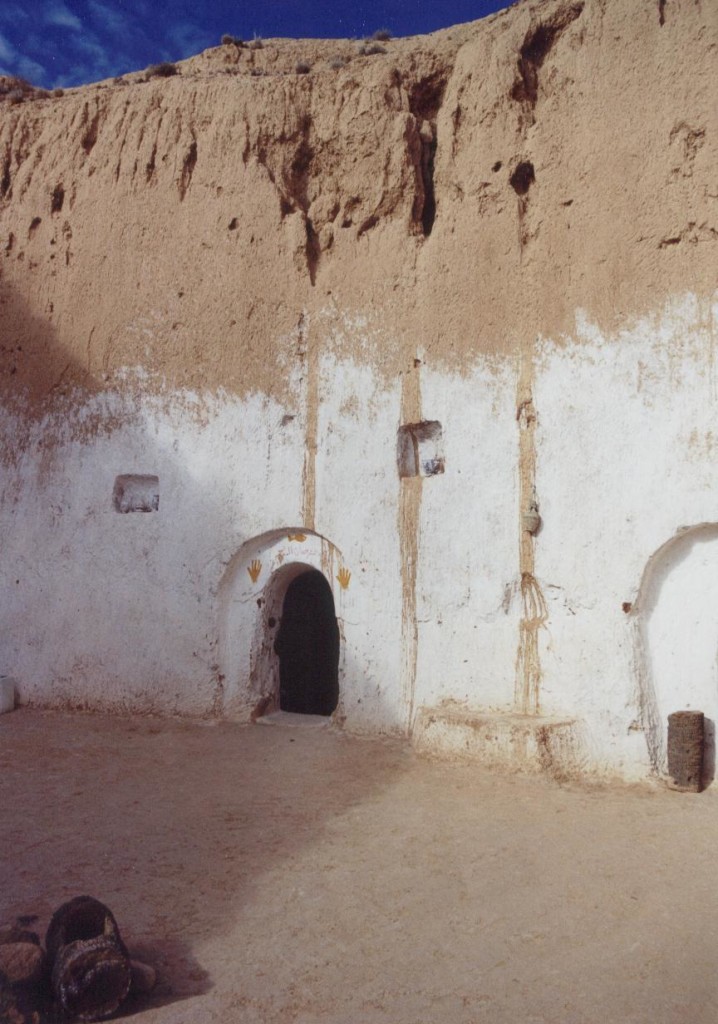
Troglodyte Dwelling
In Tunisia or, what was Africa Proconsularis, the Sahara is not only made up of soft, sandy dunes that lend themselves to a meditative, barefoot promenade. The terrain toward the coast can be quite green at times. Other areas are covered by great salt lakes where the crystalline formations reflect the sun with diamond-like fascination. There are also the rocky, desert regions, such as Matmata and Tataouine, where some people live in troglodyte dwellings. Star Wars fans will be interested to know that Owen and Beru’s farmstead was filmed in one such dwelling in the same area. Basically, these are caves below ground level where the walls are painted white so that the people can stay relatively cool even in the intensity of the summer heat. I was there in January, so I experienced no such discomfort.
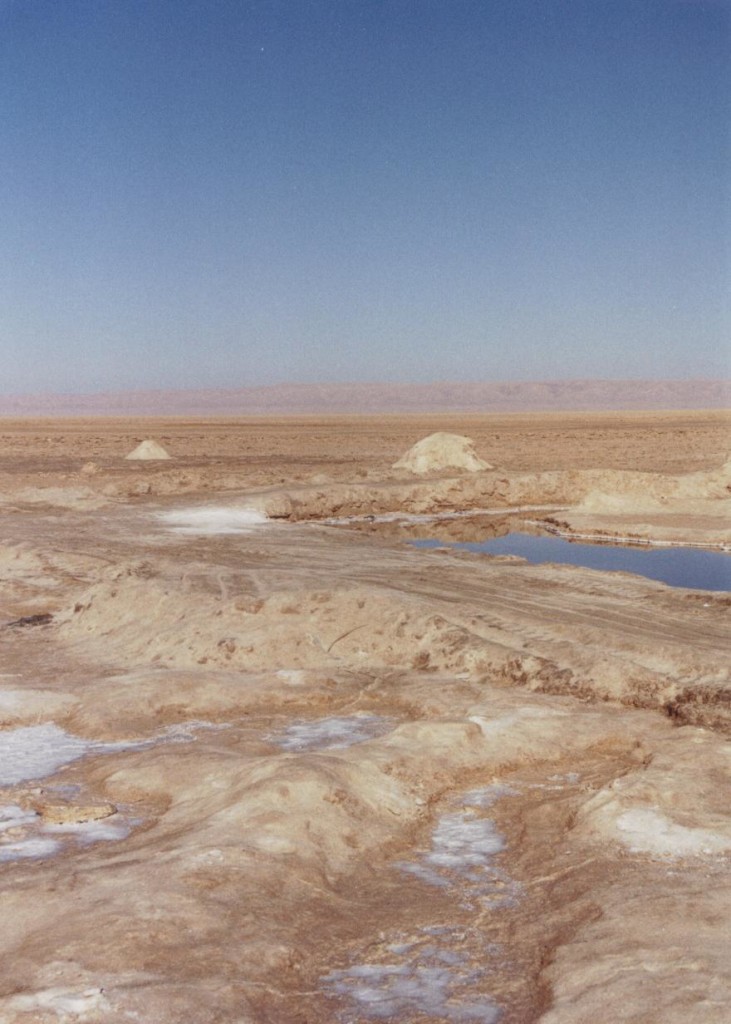
Salt Lake of
Chott El Jerid
At one point, we pushed on to some of the southerly Tunisian settlements. Our 4×4 bounced along through olive groves, through rocky passes and on into the dunes as our driver, Sami, grooved and ululated to a cassette called ‘Couscous Beats’. The writer in me was absorbing all of the stimuli and one such place was the Douz Saharan market where I could have bought a camel or donkey, if that was my inclination. The market had vintage radios, tin jewellery with Berber designs, fezzes and mounds of fragrant spices. But watch out for the pickpockets! One of our group had her purse sliced with an exacto knife and she was none the wiser. Luckily, she was a birder and her binoculars blocked the thief’s hand from grabbing anything from that side of the purse.
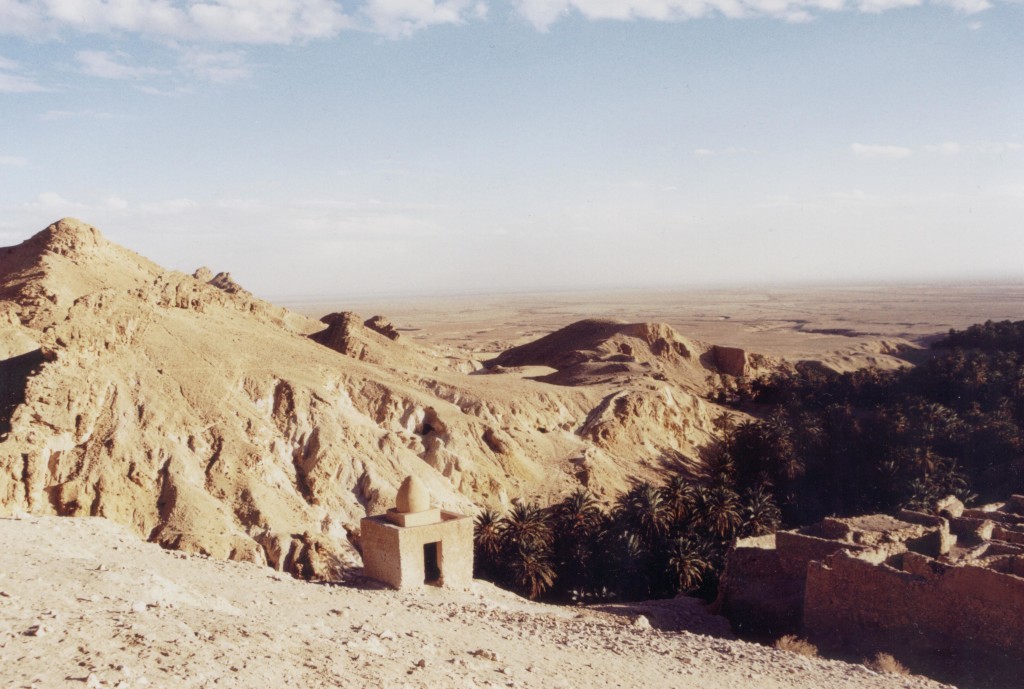
Oasis
Watching the sun set on the Sahara was a peaceful, awe-inspiring experience that I will never forget. That is, until three Berber horsemen wielding rifles pounded up toward us. My French came in handy as I explained our presence and our admiration of the beauty of the desert. I don’t know if they actually gave a toss or not because they just circled us a couple times and galloped off.
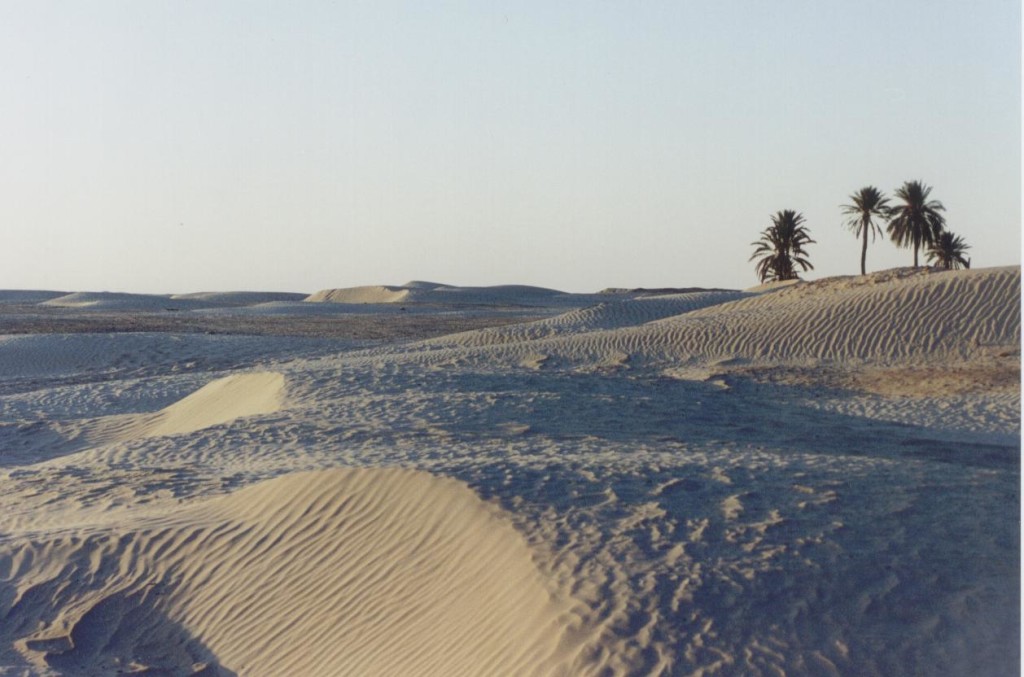
Sahara near Tozeur
The next day we visited the Mos Eisley set of Star Wars (Episode II at that time) near Tozeur (guarded by a couple of Berber men, their camels and two really long rifles). For me this was a real thrill and though the main part of the set was blocked off, there were other, smaller set pieces that could be visited. It was a beautiful spot and difficult to imagine what it might have been like with the entire cast and crew of Star Wars there. Somewhat less peaceful, I imagine.
From there we headed north along the Algerian border. We asked our guides if we could go into Algeria, which seemed much rockier, and they said that if we approached the boarder we would be shot at. I tried to imagine Lambaesis, in the distance, where an entire Roman legion was based so long ago. I knew it had to be a part of my story, but at that early stage I wasn’t sure yet how big a part it had to play.
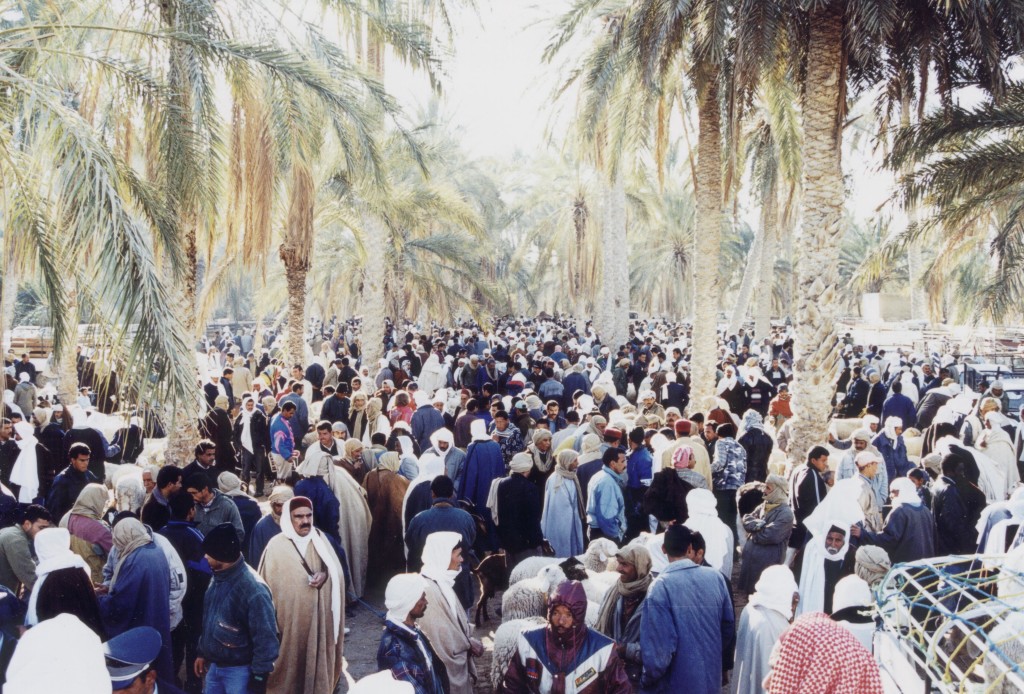
Douz Animal Market
In the next instalment of The World of Children of Apollo, I will look briefly at some of the towns and larger settlements of Roman North Africa.
Wine, olives and gladiatorial combat are optional!
Thank you for reading.

